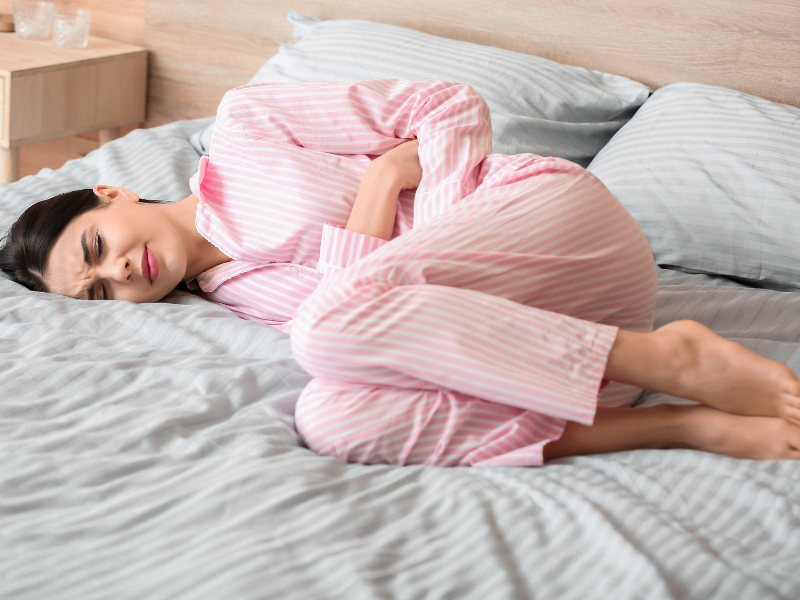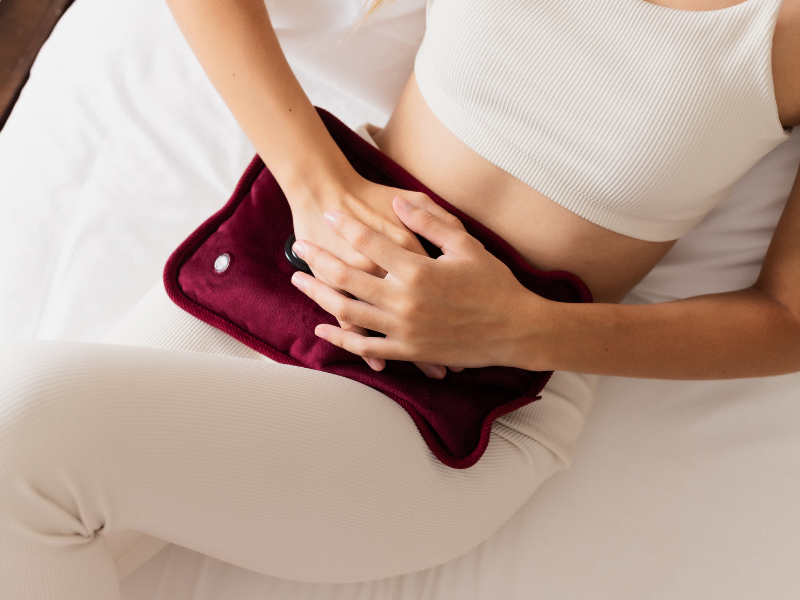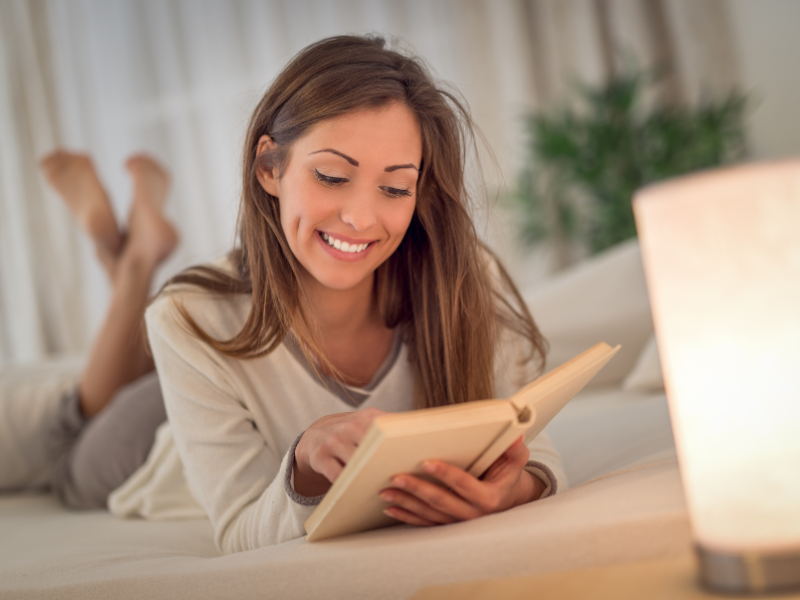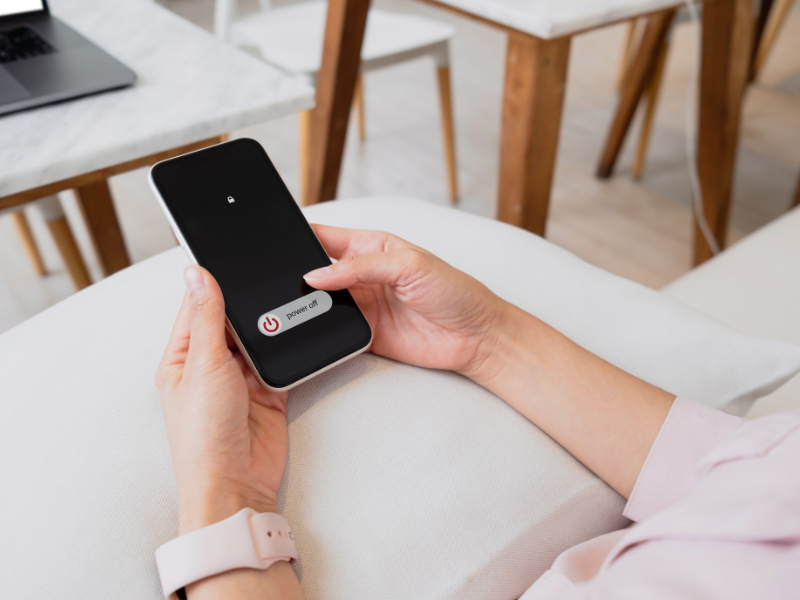


Can’t sleep during period? According to a National Sleep Foundation study, 30% of women have trouble sleeping during their periods. A change in mood, feelings of worry, uncomfortable cramps, or nausea might bring this on.
Many women say that each cycle causes sleeping problems for 1-2 days. During their premenstrual phase, some women report increased awakenings and other sleep disruptions. While other women describe being overly sleepy, exhausted, and needing more sleep.
During your period, your body undergoes numerous hormonal changes. These changes can affect your mood, energy levels, and ability to sleep. The hormone progesterone drops right before your period starts. It can make you feel tired and sluggish. During your period, the hormone estrogen rises and falls, which can lead to mood swings and trouble sleeping.

There are a few reasons why you can’t sleep during your period. One reason is that your body is expending extra energy to shed the uterine lining, which can lead to fatigue. Therefore, you feel exhausted, but you are unable to sleep during the days leading up to your period, because progesterone keeps your body temperature high.

Having trouble sleeping during your period could also be because of the pain or cramping you are experiencing. You may find it challenging to sleep well because of this.
Premenstrual syndrome (PMS) and premenstrual dysphoric disorder (PMDD) are two conditions that may prevent women from sleeping through their periods.
A group of symptoms starts to show up a few days before menstruation, known as PMS. These signs and symptoms might include weariness, bloating, mood fluctuations, and irritability. PMS can be severe enough for some women to affect their everyday activities.
PMS and PMDD symptoms are similar, however, PMDD symptoms are more severe. Women with PMDD may experience depression, anxiety, and extreme moodiness in the days before their period. They also can’t sleep during periods.
Both PMS and PMDD can make it difficult to sleep during menstruation. There are some things you may do to ease yourself if you’re having difficulties falling asleep.
First, refrain from drinking alcohol and caffeine during the days before your period. Both caffeine and alcohol carry the risk of disrupting sleep.
Second, make sure you follow a regular sleep schedule. You can regulate your body’s natural body clock by going to bed and waking up at the same time every day.
When you have your period, the hormonal changes and physical symptoms can significantly impact your sleep. Period cramps, also known as menstrual pain, can make it difficult to find a comfortable sleeping position.
However, there are sleeping positions that can help alleviate and reduce menstrual pain. Additionally, practicing yoga poses like forward folds, supine twists, bound angle pose, and legs up the wall before bed can also help alleviate cramps.

To alleviate period cramps, try sleeping in the fetal position or on your stomach with the support of a pillow.
Sleeping in the fetal position can help reduce pain and cramp pain by reducing strain on your abdominal muscles. This position allows the skeletal muscles around the abdomen to relax, providing comfort and relief. Research even suggests that sleeping in the fetal position can help prevent leakage during heavy flow.
However, if you prefer sleeping on your stomach, be aware that it may increase the likelihood of leakage due to pressure on the abdomen. Consider using period undies or overnight pads as an extra backup.
Regardless of which position you choose, using a pillow strategically, such as placing it between your thighs or beneath your knees, can further alleviate discomfort and reduce lower back pain.

For further relief from period cramps, consider incorporating a child’s pose and various yoga poses into your sleep routine.
These poses can help alleviate cramping and provide pain relief during your period. A child’s pose, similar to the fetal position, can help ease period cramps by gently stretching and releasing tension in the lower back and abdominal area.
Additionally, there are other yoga poses that specifically target period pain, such as forward folds, supine twists, bound angle pose, and legs up the wall.
While you may not be able to sleep in these positions, practicing them before bed can help ease cramps and promote relaxation.
Lie on your back and gently massage your abdomen to help ease period cramps and promote relaxation.
Sleeping on your back allows for abdominal massage, which can provide relief from period cramps. By massaging the abdomen, you can help alleviate the pain and discomfort associated with cramps. Additionally, using aromatherapy oils like lavender and cinnamon during the massage may further reduce pain.
When sleeping on your back, consider placing a pillow between your thighs if you’re a side sleeper or beneath your knees if you sleep on your back to alleviate any discomfort or back pain. Adding an extra pillow beneath your neck can also provide additional support.
Try this position and abdominal massage to ease cramps and promote a more restful sleep during your menstrual cycle.
If you’re experiencing period cramps, using a pillow can be an effective way to relieve pain while you sleep. Regardless of your sleeping position, strategically incorporating a pillow can help alleviate period cramps.
For side sleepers, placing a pillow between your thighs can help alleviate discomfort by providing support and reducing strain on your abdominal muscles.
Back sleepers can tuck a pillow beneath their knees to add support and alleviate pressure on the lower back and abdomen. Additionally, using a pillow beneath your neck can enhance comfort when sleeping on your back.
90% of women claim to have seen at least some modifications in their physical or mental well-being before their menstruation. If you are feeling tired during your period and are unable to sleep, there are a few things you can do to help yourself get better sleep. Here are the top 5 tips:
First of all, try to regularize your sleep and waking up time as much as possible. This means sleeping and waking up at a fixed time daily. It will help you fall asleep regardless of whether you are having hormonal changes. Even if you follow a particular routine on weekends, it gives signals to your body that this is sleep time.
If you are struggling with setting up a sleep schedule and following a particular routine, ShutEye® can be a savior in that case. It helps you track your sleep and give suggestions based on your sleep quality. It also analyses your sleep and has an inbuilt smart alarm.
Second, create a bedtime routine for yourself that you find relaxing. This could include relaxing activities like taking a warm bath, reading, or listening to music. These activities might help your body relax and get ready for sleep. You can also actively choose to meditate or perform some relaxation techniques which will reduce your heart rate.

Third, avoid caffeine and alcohol before bed. Both of them may disrupt sleep and make falling asleep more difficult. They irritate your stomach mucosa and act as stimulants, which can worsen your sleep and period cramps.
Therefore, keep your caffeine intake to a minimum, particularly six hours before bed. Anyone who has drunk a cup of coffee too soon before getting to sleep will confirm that.
Fourth, grab some painkillers, such as a bottle of hot water or herbal peppermint tea, as soon as you begin to have cramps. Bring a hot water bottle to bed even if you don’t get cramps before heading to sleep. This helps to ease menstrual cramps and can make it easier to fall asleep.
We’re all guilty of using our smartphones or tablets excessively. Make it a practice to turn off your phone one hour before bed. Tell those internet shopping devils you’ll see them in the morning when you battle them. Emails and social updates can wait.
We would highly urge you to avoid watching television in bed as well. Some studies have shown that the blue light emitted from electronics close to bedtime can impact sleep quality. Therefore, it is wise to read a book or do something else relaxing instead. In addition, Dr. Neil Stanley cautions against using “Paperwhite devices” since they “have also been shown to affect sleep.”

You may face sleep issues around and during your periods because they cause some hormonal changes and cramps. These hormonal changes and cramps disturb your sleep cycle. We have mentioned some of the ways to help you if you can’t sleep during your periods.
Office on Women's Health. (n.d.). Premenstrual syndrome. Women's Health. Retrieved from https://www.womenshealth.gov/menstrual-cycle/premenstrual-syndrome
Sleep Foundation. (n.d.). PMS and insomnia. Sleep Foundation. Retrieved from https://www.sleepfoundation.org/insomnia/pms-and-insomnia
Fiona C. Baker, Tracey L. Kahan, John Trinder, Ian M. Colrain, Sleep Quality and the Sleep Electroencephalogram in Women with Severe Premenstrual Syndrome, Sleep, Volume 30, Issue 10, October 2007, Pages 1283–1291, https://doi.org/10.1093/sleep/30.10.1283